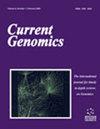COVID-19: Recent Insight in Genomic Feature, Pathogenesis, Immunological Biomarkers, Treatment Options and Clinical Updates on SARS-CoV-2
IF 1.4
4区 生物学
Q4 BIOCHEMISTRY & MOLECULAR BIOLOGY
引用次数: 0
Abstract
: SARS-CoV-2 is a highly contagious and transmissible viral infection that first emerged in 2019 and since then has sparked an epidemic of severe respiratory problems identified as “coronavirus disease 2019” (COVID-19) that causes a hazard to human life and safety. The virus developed mainly from bats. The current epidemic has presented a significant warning to life across the world by showing mutation. There are different tests available for testing Coronavirus, and RTPCR is the best, giving more accurate results, but it is also time-consuming. There are different options available for treating n-CoV-19, which include medications such as Remdesivir, corticosteroids, plasma therapy, Dexamethasone therapy, etc. The development of vaccines such as BNT126b2, ChAdOX1, mRNA-1273 and BBIBP-CorV has provided great relief in dealing with the virus as they decreased the mortality rate. BNT126b2 and ChAdOX1 are two n-CoV vaccines found to be most effective in controlling the spread of infection. In the future, nanotechnology-based vaccines and immune engineering techniques can be helpful for further research on Coronavirus and treatment of this deadly virus. The existing knowledge about the existence of SARS-- CoV-2, along with its variants, is summarized in this review. This review, based on recently published findings, presents the core genetics of COVID-19, including heritable characteristics, pathogenesis, immunological biomarkers, treatment options and clinical updates on the virus, along with patents.COVID-19:关于 SARS-CoV-2 的基因组特征、发病机制、免疫生物标志物、治疗方案和临床更新的最新见解
:SARS-CoV-2 是一种高度传染性和传播性的病毒感染,于 2019 年首次出现,此后引发了严重呼吸道问题的流行,被认定为 "冠状病毒病 2019"(COVID-19),对人类生命安全造成危害。该病毒主要由蝙蝠发展而来。目前的疫情出现变异,给全球生命带来了重大警示。目前有不同的检测方法来检测冠状病毒,其中 RTPCR 是最好的方法,它能提供更准确的结果,但也很耗时。治疗 n-CoV-19 有多种方案,包括雷米地韦等药物、皮质类固醇、血浆疗法、地塞米松疗法等。BNT126b2、ChAdOX1、mRNA-1273 和 BBIBP-CorV 等疫苗的开发大大降低了病毒的死亡率。BNT126b2 和 ChAdOX1 是在控制感染传播方面最有效的两种 n-CoV 疫苗。未来,基于纳米技术的疫苗和免疫工程技术将有助于进一步研究冠状病毒和治疗这种致命病毒。本综述概述了有关 SARS--CoV-2及其变种存在的现有知识。本综述以最近发表的研究结果为基础,介绍了 COVID-19 的核心遗传学,包括遗传特征、致病机理、免疫学生物标志物、治疗方案和该病毒的最新临床研究成果以及专利。
本文章由计算机程序翻译,如有差异,请以英文原文为准。
求助全文
约1分钟内获得全文
求助全文
来源期刊

Current Genomics
生物-生化与分子生物学
CiteScore
5.20
自引率
0.00%
发文量
29
审稿时长
>0 weeks
期刊介绍:
Current Genomics is a peer-reviewed journal that provides essential reading about the latest and most important developments in genome science and related fields of research. Systems biology, systems modeling, machine learning, network inference, bioinformatics, computational biology, epigenetics, single cell genomics, extracellular vesicles, quantitative biology, and synthetic biology for the study of evolution, development, maintenance, aging and that of human health, human diseases, clinical genomics and precision medicine are topics of particular interest. The journal covers plant genomics. The journal will not consider articles dealing with breeding and livestock.
Current Genomics publishes three types of articles including:
i) Research papers from internationally-recognized experts reporting on new and original data generated at the genome scale level. Position papers dealing with new or challenging methodological approaches, whether experimental or mathematical, are greatly welcome in this section.
ii) Authoritative and comprehensive full-length or mini reviews from widely recognized experts, covering the latest developments in genome science and related fields of research such as systems biology, statistics and machine learning, quantitative biology, and precision medicine. Proposals for mini-hot topics (2-3 review papers) and full hot topics (6-8 review papers) guest edited by internationally-recognized experts are welcome in this section. Hot topic proposals should not contain original data and they should contain articles originating from at least 2 different countries.
iii) Opinion papers from internationally recognized experts addressing contemporary questions and issues in the field of genome science and systems biology and basic and clinical research practices.
 求助内容:
求助内容: 应助结果提醒方式:
应助结果提醒方式:


